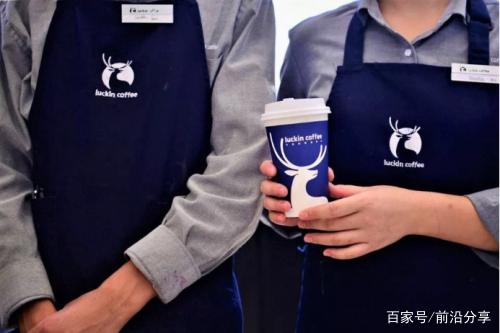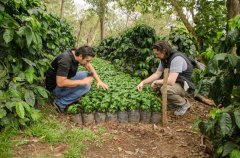Ethiopian Sun Yega Feiwei Flower Coffee Bean Story _ riddle of Eya Coffee Bean Variety

Professional coffee knowledge exchange more coffee bean information please follow the coffee workshop (Wechat official account cafe_style)
Ethiopian Coffee Yega Xuefei:
Yega Xuefei is from the Oromia (Orami) Coffee Farmers Cooperative (OCFCU,Oromia Coffee Farmers Co-operative Union) of Ethiopian Coffee. Ethiopia is the hometown of coffee, with more than 1.2 million farmers and 15 million families living on coffee. Coffee exports even account for more than 65 per cent of Ethiopia's total exports.
However, the price of coffee is always determined by the New York and London markets, not by coffee farmers. Before 1989, the minimum purchase price for coffee was signed by the International Coffee Organization, at least with the agreement of international producers and buyers. But when the international coffee agreement collapsed in 1989, coffee prices fell for 30 years in a row, plunging coffee producers around the world into absolute poverty.
OCFCU, the largest fair trade coffee producer in Ethiopia, was established in June 1999 and consists of 35 smallholder cooperatives with a total of 23691 coffee growers. The purpose of the establishment is to rally the strength of small farmers to survive in harsh market conditions, of which 7107 producers have been Fairtrade certified.
In Oromia, there are about 630000 people who depend on coffee for a living. the raw coffee beans they produce sell for about 15 pounds a kilogram in western countries, but the producers only get 0.05 pounds (about 0.5 yuan), for most families. This income keeps them in poverty, unnutritious food, clean water and clothing, household electricity and children's education.
A coffee farmer at Oromia said: 'our problem is that when we were ready to harvest and sell our coffee, a man walked into our field and said: 0.75 yuan a kilo, don't get it. We have no room to bargain, it's entirely up to him. We used to use the money we got from growing coffee to buy clothes and food, but now it is difficult to support our families.'
Tadesse Meskela, manager of the cooperative, said: 'the only goal is to get money into the pants pockets of coffee farmers and improve the lives of farmers. But cooperatives do not force coffee farmers to sell coffee to cooperatives, so the success of cooperatives is entirely due to the provision of fair prices for their members.'
Since 2001, Oromia cooperatives have grown from 34 small cooperatives to 101, and their membership has grown from 22500 to 75000 (Fairtrade cooperatives do not always have a smooth journey, and the number of cooperatives varies up and down in the process of development). At the same time, the surplus has grown from NT $289000 (about NT $870000) to NT $6.9 million (about NT $20.26 million today). The initial investment was NT $825000, and so far the scale of investment has reached NT $17.4 million. In just six years, the operation scale of the cooperative has increased by 2100 times, but all the achievements are owned by small farmers.
70% of sales and export earnings are spent on 74 cooperatives, where small farmers invest Fairtrade surpluses in boosting production capacity and equipment. The remaining 30% is used to boost production, become relief funds for years of famine, or community development. Another cooperative support for farmers is shown in the Community improvement Program. The cooperative spent 2.7 million yuan (about NT $8.25 million today) on the Community improvement Program. The actual results include the establishment of four schools and 25 classrooms. More than 5000 children have books to read, and three villages have set up clean drinking water systems, which finally put an end to the tragedy of dirty water sources that killed more than 3000 people. Bid farewell to infectious diseases and deaths caused by unclean water. There are also four new medical clinics that handle more than 6000 patients a year and give a brief account of the time they receive treatment.
(children from the Oromia Oulami Coffee Farmers' Cooperative are studying at school.)
(schools established with Fairtrade Community Development Fellowship)
(Oromia Aurami Cooperative uses feedback money from Fairtrade roasters to improve the water supply system and create clean water for coffee farmers.)
The cooperation of small farmers and the sharing of resources have expanded the level of influence. The development of cooperatives benefits not only individual small farmers but also the community as a whole.
The most important impact of cooperatives is on prices, says Tadesse Meskela. When international coffee prices plummeted in 2002 / 3, cooperatives still offered farmers a price that was 300% higher than that of multinational companies. Even now, the price for farmers is still 80% higher than 100%. This means that small farmers have the ability to send their children to receive education and buy them clean clothes. The small farmer's house can be repaired more sturdily. Any reward received, at the same time lead the family and the community to move forward, away from poverty.
For Tadesse Meskela, trade is far more helpful to development than aid. He said, 'Today you give me money to buy food, and tomorrow I will ask you again. Invest in my production tools, I will no longer need to ask you for money.' Today's society certainly has the ability to give better aid, but the case of Oromia serves as a model for more than 8 million cooperatives around the world: they are also empowering their members to work out of poverty, and perhaps now is the time for the world to see their worth. Ethiopia has always given people the stereotype of poverty, and the success of the Oromia coffee farmers' cooperative has become an important example of the positive impact of the Fair Trade Movement, and even become the protagonist and scene of the film Black Gold.
The taste of coffee looks this way:
The Ethiopian coffee Yega Chuefei on Qianjie Street comes from the Oromia Oulami Coffee Farmers' Cooperative and has organic certification from the British soil Association. it grows in the mountains of 1500-2000 meters above sea level and has a grade of G2 (G1 is very rare. G2 is already a very good grade). Raw beans are green in color, slender and graceful in appearance and crisp in collision sound. After cooking, the liquid is as smooth as silk, with rich floral and citrus aromas, persistent nose aromas, some herbal and caramel aromas, high sweetness, obvious but mild acidity and a long finish. This time, in order to satisfy the glutton's taste buds, both light baking and medium baking are provided. Shallow baking has more sour taste, richer layers, and heavier sweetness in medium baking. According to personal preference, there is no good or bad. It's best to make an appointment in advance to avoid a free trip. Ethiopia Yega Xuefei 227g/85 yuan per pack.
END
Important Notice :
前街咖啡 FrontStreet Coffee has moved to new addredd:
FrontStreet Coffee Address: 315,Donghua East Road,GuangZhou
Tel:020 38364473
- Prev

Ethiopian high-light Gucci coffee scam! Is Sidamo GU JI quality / batch or production area?
Professional coffee knowledge exchange more coffee bean information Please follow the coffee workshop (Wechat official account cafe_style) recently brushed beans on a treasure, happened to see a store selling Ethiopian coffee beans, originally, colleagues have to save some face, some tricks no one is bothered to expose, but this time we see is the most outrageous in history
- Next

Introduction of Ethiopian kochere Cochel Cooperative _ Yega Sleeping Coffee Bean Flavor
Professional coffee knowledge exchange more coffee bean information please follow the coffee workshop (Wechat official account cafe_style) Ethiopian coffee is mainly produced in eight major areas: Ekempti, Limu, Illubabor, Djimma, Harrar, Teppi/Bebeka, Sidamo, Yirgacheffe. Yirgacheffe is located in Gedeo in southern Ethiopia.
Related
- Detailed explanation of Jadeite planting Land in Panamanian Jadeite Manor introduction to the grading system of Jadeite competitive bidding, Red bid, Green bid and Rose Summer
- Story of Coffee planting in Brenka region of Costa Rica Stonehenge Manor anaerobic heavy honey treatment of flavor mouth
- What's on the barrel of Blue Mountain Coffee beans?
- Can American coffee also pull flowers? How to use hot American style to pull out a good-looking pattern?
- Can you make a cold extract with coffee beans? What is the right proportion for cold-extracted coffee formula?
- Indonesian PWN Gold Mandrine Coffee Origin Features Flavor How to Chong? Mandolin coffee is American.
- A brief introduction to the flavor characteristics of Brazilian yellow bourbon coffee beans
- What is the effect of different water quality on the flavor of cold-extracted coffee? What kind of water is best for brewing coffee?
- Why do you think of Rose Summer whenever you mention Panamanian coffee?
- Introduction to the characteristics of authentic blue mountain coffee bean producing areas? What is the CIB Coffee Authority in Jamaica?

